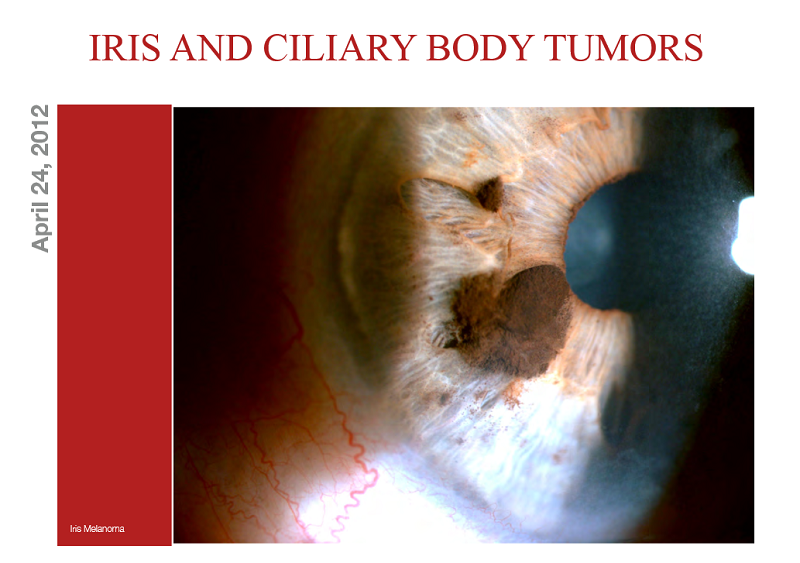 Iris melanoma is a relatively rare form of eye cancer.
Iris melanoma is a relatively rare form of eye cancer.
Dr. Finger chaired a multi-center, internet-assisted, international study that staged and described the clinical and pathologic characteristics of biopsy proven malignant melanoma of the iris. As a result, he has extensive knowledge of this type of cancer.
Surgical removal of the iris and ciliary body (called iridectomy, iridocyclectomy or eye wall resection) is the traditional treatment, but it has been associated with risks of tumor dissemination, intraocular hemorrhage, lens dislocation and retinal detachment. Due to these potential complications, Dr. Finger began looking into alternatives about 30 years ago. His subsequent experience with plaque radiation for anterior segment tumors (melanoma, carcinoma), proved it offers better outcomes with preservation of the iris and its function.
In 2012, he published on plaque radiation treatment of iris melanoma. While 71.4% of his patients developed an easily treatable cataract, there was almost no risk for radiation damage to the macula or optic nerve. Local control rates have been better than for choroidal melanoma, showing plaque radiation provides a better treatment option than surgery.
“I believe there is little reason to perform surgical excision to treat iris and ciliary body melanomas.”
For more information about Iris melanoma and treatment options, download the PDF:









